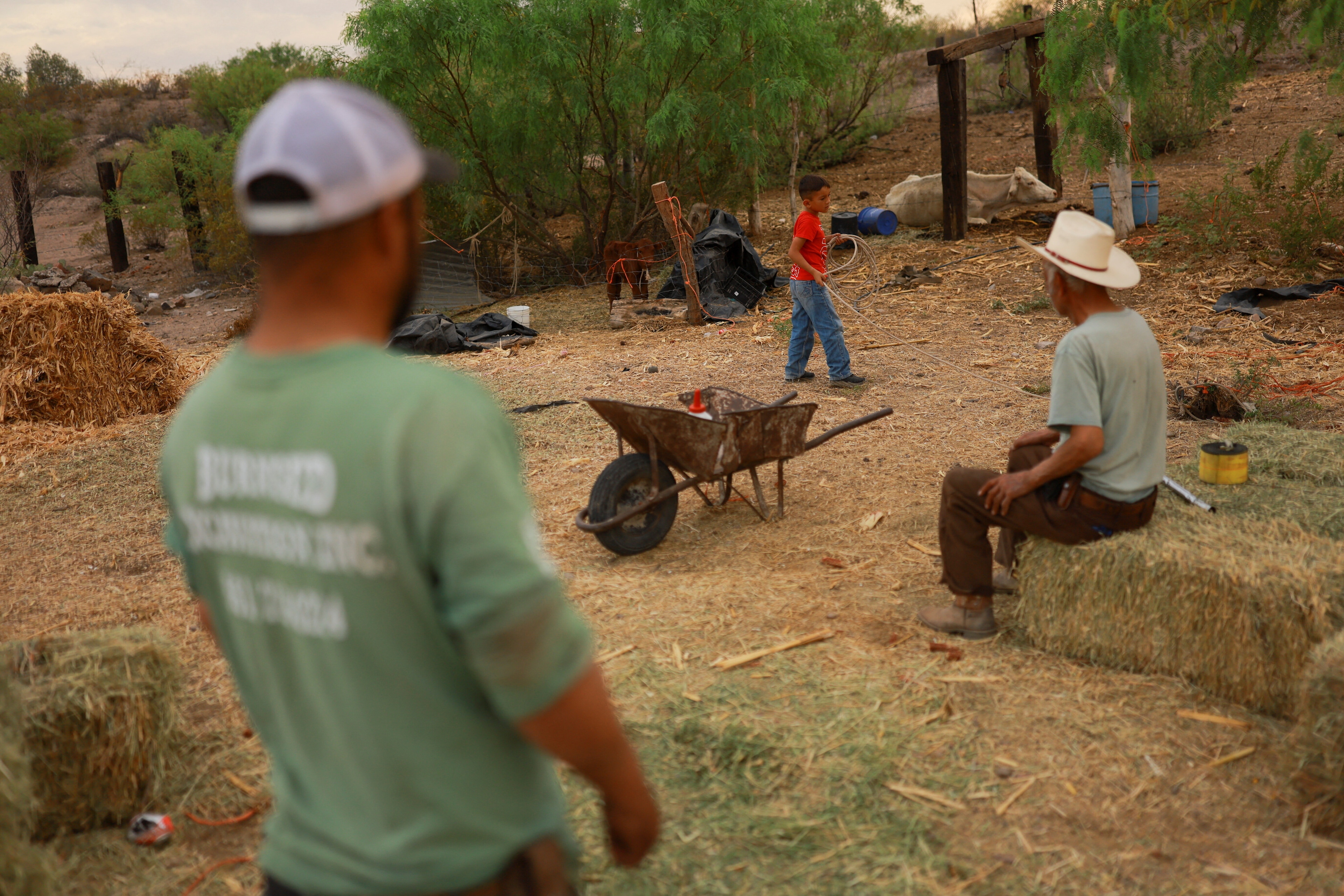Climate change is affecting people’s health – here’s how the private sector can help

The public sector plays a pivotal role in addressing the impact of climate change on health, but the private sector could also be a critical avenue for driving progress.
Image: Getty Images/iStockphoto
- The complex, interconnected impact of climate change on health is driven by systemic factors across infrastructure, agriculture, livelihoods and healthcare.
- The health impacts of climate change also threaten businesses and workforces, and so the private sector must use its resources and expertise to help mitigate this.
- To make this happen, industries must collaborate with the public and non-profit sectors to develop, apply and encourage adoption of new technologies.
Climate change poses a growing threat to global health that demands immediate attention. Vulnerable populations around the world bear a disproportionate burden of these health risks but receive insufficient support for mitigation and recovery.
A range of concerning climate change-related impacts has already had a visible effect on public health. These issues could intensify without concerted action:
- Extreme weather: Extreme weather events affect around 189 million people annually. Developing countries are home to 97% of people affected and 79% of deaths attributed to extreme weather since 1991.
- Air quality: Air pollution causes 6.7 million premature deaths globally every year. It disproportionately affects urban populations due to indoor air pollution – from the use of some fuels in homes, for example – which is a major contributor to overall air pollution. Research shows 89% of premature deaths related to air pollution occur in low- and middle-income countries (LMICs), particularly in Southeast Asia and the Western Pacific region.
- Food and water risks: Food insecurity affects 2.3 billion people around the world and in low-income countries 60% of the population is affected. Low-income communities are also overrepresented among the 2 billion people around the world that lack access to clean water.
- Infectious agents: Nearly 14 million deaths globally per year are infection-related, and over half of all infectious diseases are aggravated by climate change. This is because rising air and water temperatures and changes in precipitation patterns and humidity levels alter the global distribution of pathogens and accelerate the spread of disease.
To tackle these challenges, we need to identify how the different manifestations of climate change are affecting people’s health directly and indirectly.
That’s why the Climate and Health initiative at the World Economic Forum and L.E.K. Consulting have collaborated to produce an insight report called Health Impacts of Climate Change: Evidence Landscape and Role of Private Sector.
This report assesses the biggest health impacts of climate change, looking at both direct and indirect drivers. It also explains the critical interventions required to address the areas where action is most urgently needed.
How climate change affects health
This comprehensive review of academic studies and reports identifies the 10 areas of health that are most severely affected by climate change and urgently require intervention:

The report shows that infants, children, the elderly, and pregnant women are particularly vulnerable in all of these areas. Weakened physiological functions can prevent people in these groups from adapting to environmental changes like rising temperatures and make them less effective at combating infections. Women are also more vulnerable because their livelihoods are often more reliant on natural resources.
Socially disadvantaged populations, including lower-income individuals and racial minorities, face interconnected challenges – from higher rates of pre-existing medical conditions, to substandard living conditions and limited access to healthcare services. In developed countries too, rural populations are vulnerable due to limited access to healthcare services and to the internet – a vital source of information and connectivity.
How is the World Economic Forum fighting the climate crisis?
Drivers of poor health
The complex, interconnected ways in which climate change can affect people's health arise from a web of systemic drivers, including infrastructural damage, agricultural disruption, livelihood loss and healthcare access challenges.
The report’s analysis has pinpointed 12 of these drivers, which can be categorized as primary contributors (the direct effects of climate change), secondary contributors (drivers arising from primary contributors) and amplifiers, which are pre-existing conditions that exacerbate the primary and secondary drivers or the resulting health effects.
Addressing these common, underlying drivers could mitigate the broad spectrum of climate-related health effects. The report identifies six key intervention themes that could be used to help communities and healthcare systems manage the effects of climate change:

What is the World Economic Forum doing to accelerate value-based health care?
Involving the private sector
The public sector plays a pivotal role in addressing the impact of climate change on health, but the private sector could also be a critical avenue for driving progress. Private climate finance has been increasing at half the rate of public finance in recent years, with most progress made in funding renewable energy and a notable shortfall in adaptation and resilience finance.
But private companies in many industries also have a vested interest in enhancing climate resilience and could contribute valuable resources, expertise, and innovative solutions. In particular, technology could play a crucial role in mitigating the health impacts of climate change.
Some healthcare and pharmaceutical companies are already exploring digital tools to expand healthcare access. In other industries, agritech companies have developed innovative solutions to address climate challenges faced by farmers, while insurers have started to offer weather insurance products to manage climate-related risks.
Additionally, the energy, construction and transportation industries are deploying technologies to address issues like wastewater management and to expand electricity and connectivity for health facilities. This includes technology to enhance infrastructure durability and reliability, monitor integrity, retrofit systems for severe weather and to diversify supply chains to reduce disruption risks.
Accept our marketing cookies to access this content.
These cookies are currently disabled in your browser.
But this is only the beginning. To unlock the private sector's full potential, industries must collaborate, using their complementary skills and expertise to encourage the development, application and adoption of new technologies.
Fostering collaboration between the public sector, private companies, and non-profit organisations could also help to bridge gaps in capabilities and knowledge and promote inclusivity. This could maximise the impact of climate resilience initiatives targeting public health.
The combined strength of these diverse stakeholders should be used to enhance global resilience to climate change while also improving the health of the world’s vulnerable populations.
Don't miss any update on this topic
Create a free account and access your personalized content collection with our latest publications and analyses.
License and Republishing
World Economic Forum articles may be republished in accordance with the Creative Commons Attribution-NonCommercial-NoDerivatives 4.0 International Public License, and in accordance with our Terms of Use.
The views expressed in this article are those of the author alone and not the World Economic Forum.
Related topics:
Forum Stories newsletter
Bringing you weekly curated insights and analysis on the global issues that matter.
More on Climate ActionSee all
Jose Ignacio Galindo and Nicolas Wertheimer
July 24, 2025
David Elliott
July 22, 2025
Stephanie Dunn and Firuze Alpaydin
July 22, 2025
Muhammad Hassan Dajana and James Balzer
July 22, 2025



